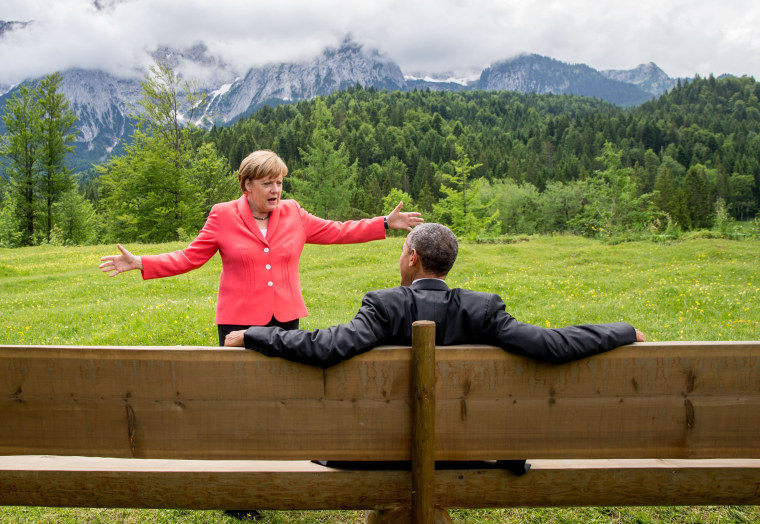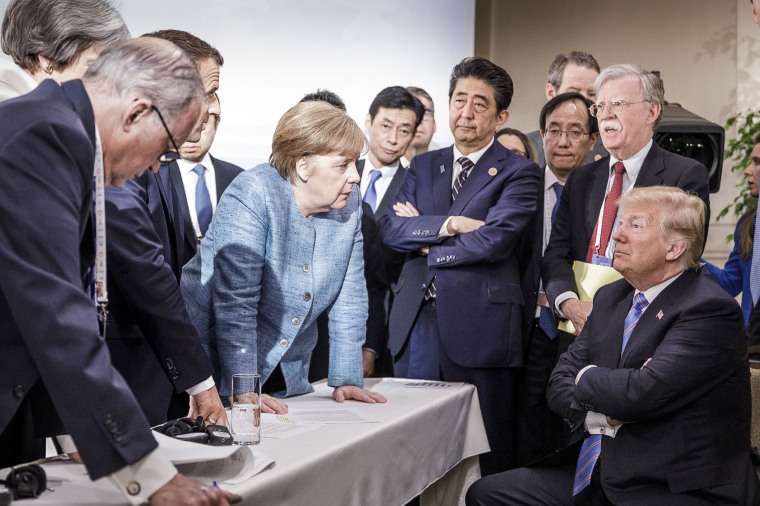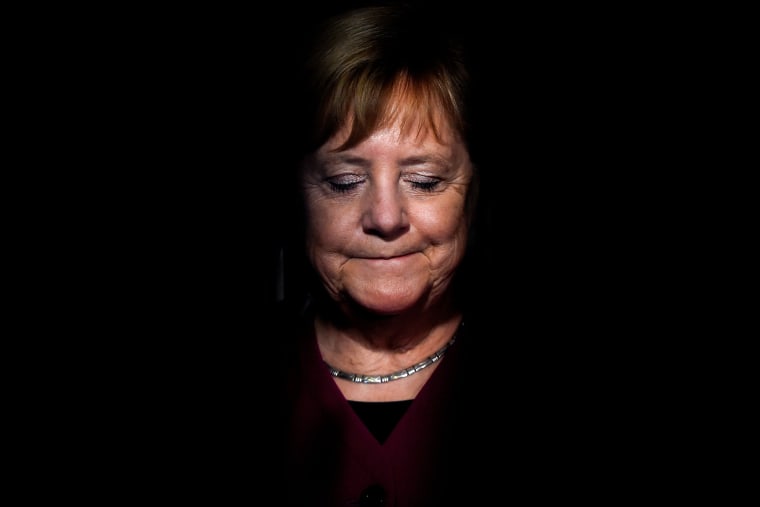When German Chancellor Angela Merkel announced this week that she would not seek another term in office, one line from her speech was particularly resonant: “I wasn’t born a chancellor,” she said, “and I never forgot this.”
It would have sounded peculiar coming from anyone else, but for Merkel the sentiment made complete sense. She may not have been born chancellor, but it’s difficult to imagine a time before the 64-year-old was such a dominant force in German and eventually international politics. Merkel took office as Germany’s first female chancellor in 2005, more than 13 years ago; her tenure has spanned, among other things, a global financial crisis, a massive influx of refugees and the renewed rise of right-wing populism in Europe.
Will history remember Merkel as the woman who helped build the current liberal world order or someone whose decisions have put it in jeopardy?
As Germany and the world contemplate the coming post-Merkel era — known in German as Merkeldämmerung, or “the twilight of Merkel” — analyzing her legacy is ultimately a complicated and contradictory undertaking. Merkel was long seen as a steady hand in turbulent times, a politically invincible force that helped shape the politics and economy of her country as well as the direction of the European Union. But as Europe faces new political headwinds, the German leader is no longer seen as quite so invincible. In fact, her actions, particularly with regard to the refugee crisis in 2015, have contributed to today’s unstable political environment.
In other words, will history remember Merkel as the woman who helped build the current liberal world order or someone whose decisions have put it in jeopardy? Or both?
Despite initially cultivating an uncontroversial and non-ideological image, Merkel has managed to become a deeply polarizing figure both at home and abroad. To one group of people, she is the comforting figure Mutti, or “mother.” She’s the “Queen of Europe,” who helped Germany weather the post-2008 recession and took it to new heights of economic prosperity. And she is the last woman standing in the liberal world order, a bulwark for liberal democracy who’s been forced to repeatedly defend its institutions in the age of Brexit and Donald Trump.

To her detractors, though, Merkel is someone whose legacy will forever be defined by her decision to allow more than one million refugees to enter Germany in 2015 and 2016, paving the way for the rise of the far-right Alternative for Germany (AfD). To these critics — including, perhaps most vocally, Trump — she represents open-border immigration policies gone wrong, the misguided executive who opened the door to a new wave of chaos and crime.
There’s a great deal about Merkel and her tenure that’s paradoxical, and her ambition and political skill have had unintended consequences. For example, she’s been a symbol of political stability for so long in part because she was able to deftly sideline or undermine potential political challengers within German politics.
And yet, her vanquishing of political opponents will likely make her departure much more difficult for the country because it left her without an heir apparent. She’s seen as a strong defender of the liberal world order — but it’s also true that her decision to allow refugees into Germany was perhaps the biggest and most effective rallying cry for the far-right populist parties that seek to undermine that order. She shifted her Christian Democrats party significantly to the center, co-opting issues like energy and migration from political opponents to cement her party’s dominant position — but that ideological move also opened up political space for the far-right populist AfD, which now holds 92 seats in Germany’s parliament and as of this weekend sits in all 16 of its state-level legislatures.
And despite being arguably the most powerful woman in the world, often surrounded entirely by men in her work on the international stage, she has not made her gender a key part of her political persona. As recently as last year, Merkel rejected the title of “feminist” and has largely refrained from outspoken advocacy on women’s issues.

The way in which Merkel announced her approaching exit from politics is perhaps her most characteristically Merkel move yet, both earth-shattering and yet oddly anticlimactic in the short term. By giving up leadership of her party, but not the chancellorship, Merkel has ensured things will not change drastically overnight. If she can manage to avoid early elections — Germany is slated to hold its next round of elections in 2021, though they could be called earlier if the governing coalition collapses or the political situation changes —she could remain in office for nearly three more years.
But there is no doubt that end of the Merkel era in German politics, whether it comes with new elections in 2021 or beforehand, will result in a massive adjustment. And ultimately how Merkel is remembered will depend a great deal on what comes next: Does Germany, and Europe, descend further into political chaos fueled by right-wing populist forces? Will the idea of a unified Europe, one that Merkel has fostered, endure? At this point, it’s very difficult to tell where both Germany and Europe are headed.
Merkel is and has been at the center of those questions. She has always seemed to feel a sense of responsibility for her role in the trajectory of her continent, a sentiment she reiterated on Monday. “Because of my office, I bear the responsibility for everything,” she said. “For successes and failures.”
